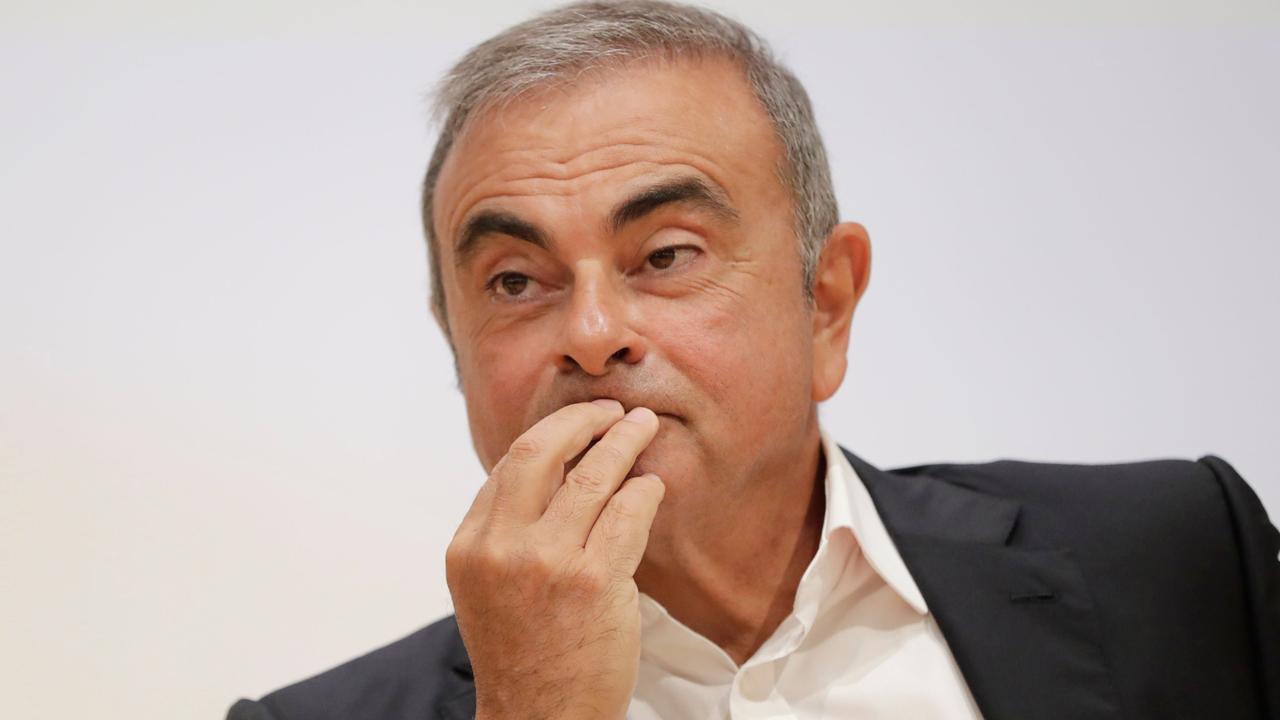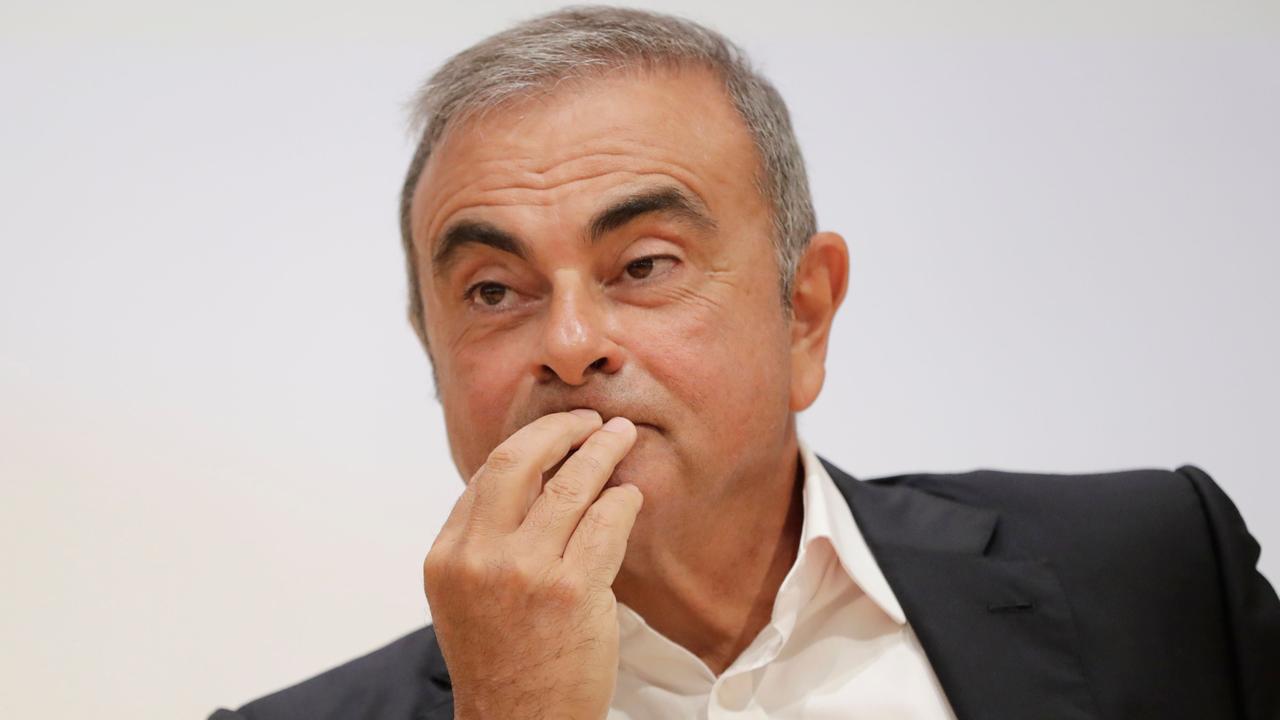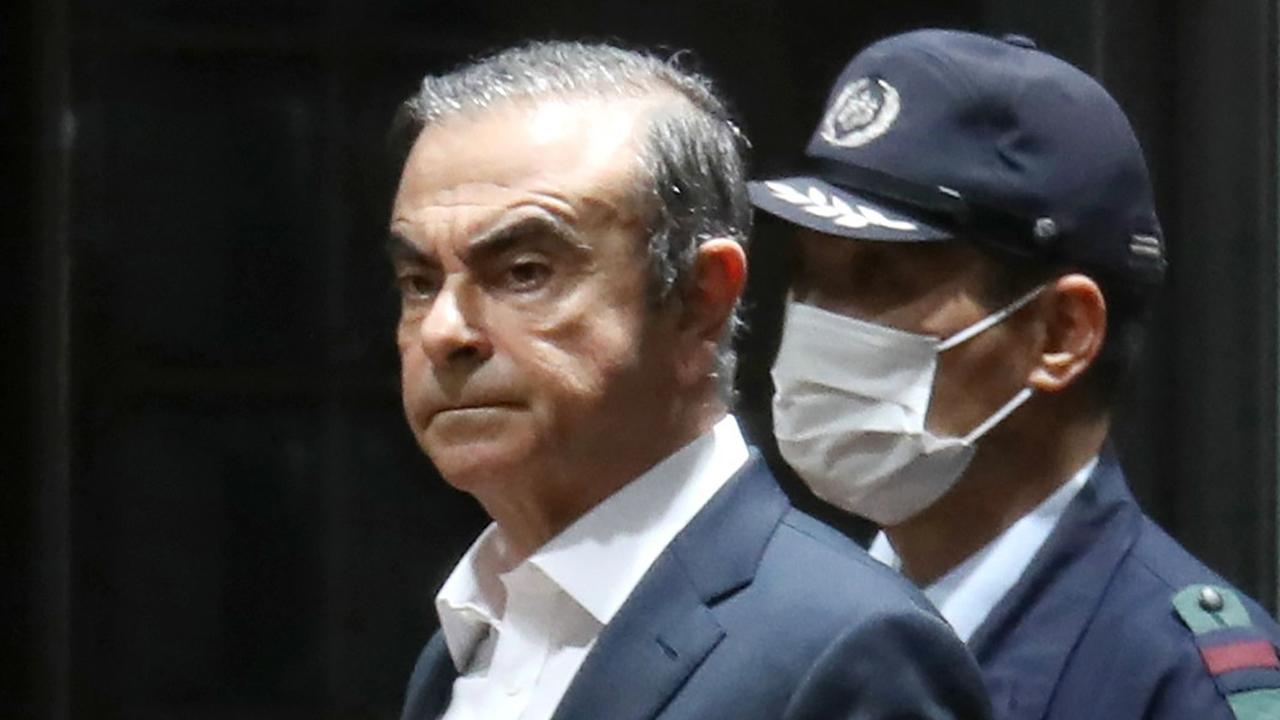Americans face prison after allegedly helping Carlos Ghosn jump bail
New details have come to light surrounding the daring plot to smuggle former Nissan boss Carlos Ghosn out of Japan.

Two Americans accused of helping former Nissan boss Carlos Ghosn jump bail and escape from Japan were indicted on Monday and face up to three years in prison.
The father-son pair arrived in Japan earlier this month from the United States after losing their battle to avoid extradition.
Both Michael Taylor and his son Peter face a single charge of helping a criminal escape.
The pair, along with a third man still at large, is believed to have masterminded the operation that saw former international jetsetter Ghosn packed into an audio-equipment case and onto a private jet to jump bail in December 2019.
Ghosn is now beyond the reach of Japanese justice in Lebanon, which does not have an extradition treaty with Tokyo.

But the Taylors were arrested in the US last year after Japan issued a warrant for them.
They sought to block Tokyo’s extradition request by claiming they would face torture-like conditions while in custody in Japan, but the US Supreme Court struck down their appeal in February.
Tokyo’s Deputy Chief Prosecutor Hiroshi Yamamoto declined to comment on their possible bail and a timetable for their trial, telling reporters: “I want to refrain from commenting their statements or arraignment as it is related to details of our investigation.”
Ghosn was a global business superstar and head of an auto alliance joining Nissan, Renault and Mitsubishi Motors before his career came crashing to an abrupt end in November 2018, when Tokyo investigators stormed his private jet to arrest him.

The French-Lebanese-Brazilian national was eventually charged with four counts of financial misconduct over claims he hid compensation and misused Nissan funds.
Having spent months in detention, Ghosn was out on bail awaiting trial on the charges — which he denies — when he fled the country in what Japanese prosecutors termed “one of the most brazen and well-orchestrated escape acts in recent history”.
The details of his escape proved embarrassing to Japanese authorities: the former tycoon allegedly caught a train to Osaka before evading security checks at Kansai airport by boarding a private jet packed into an oversized box that was not scanned.

After his arrival in Lebanon, Ghosn claimed that he had been forced to escape because he feared he would not get a fair hearing.
While Ghosn remains at large, the repercussions of both the original case against him and his escape from Japan continue.
In Tokyo, his former close aide at Nissan, Greg Kelly, is currently on trial for his alleged role in underreporting Ghosn’s income. Nissan itself faces charges in the case and has pleaded guilty.
And a Turkish court has sentenced two pilots and another employee of a small private airline to four years and two months in prison for their role in Ghosn’s escape.
Ghosn transited in Turkey, switching planes on his way to Lebanon, and the three Turks were charged with involvement in conspiracy to smuggle a migrant.
Two other pilots and two flight attendants on trial in Turkey were acquitted.
AFP



